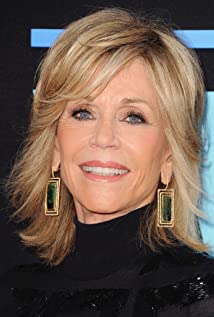Jane Fonda
Born in New York City to legendary screen star Henry Fonda and Ontario-born New York socialite Frances Seymour Brokaw, Jane Seymour Fonda was destined early to an uncommon and influential life in the limelight. Although she initially showed little inclination to follow her father's trade, she was prompted by Joshua Logan to appear with her father in the 1954 Omaha Community Theatre production of "The Country Girl". Her interest in acting grew after meeting Lee Strasberg in 1958 and joining the Actors Studio. Her screen debut in Tall Story (1960) (directed by Logan) marked the beginning of a highly successful and respected acting career highlighted by two Academy Awards for her performances in Klute (1971) and Coming Home (1978), and five Oscar nominations for Best Actress in They Shoot Horses, Don't They? (1969), Julia (1977), The China Syndrome (1979), The Morning After (1986) and On Golden Pond (1981), which was the only film she made with her father. Her professional success contrasted with her personal life, which was often laden with scandal and controversy. Her appearance in several risqué movies (including Barbarella (1968)) by then-husband Roger Vadim was followed by what was to become her most debated and controversial period: her espousal of anti-establishment causes and especially her anti-war activities during the Vietnam War. Her political involvement continued with fellow activist and husband Tom Hayden in the late 1970s and early 1980s. In the 1980s she started the aerobic exercise craze with the publication of the "Jane Fonda's Workout Book". She and Hayden divorced, and she married broadcasting mogul Ted Turner in 1991.

